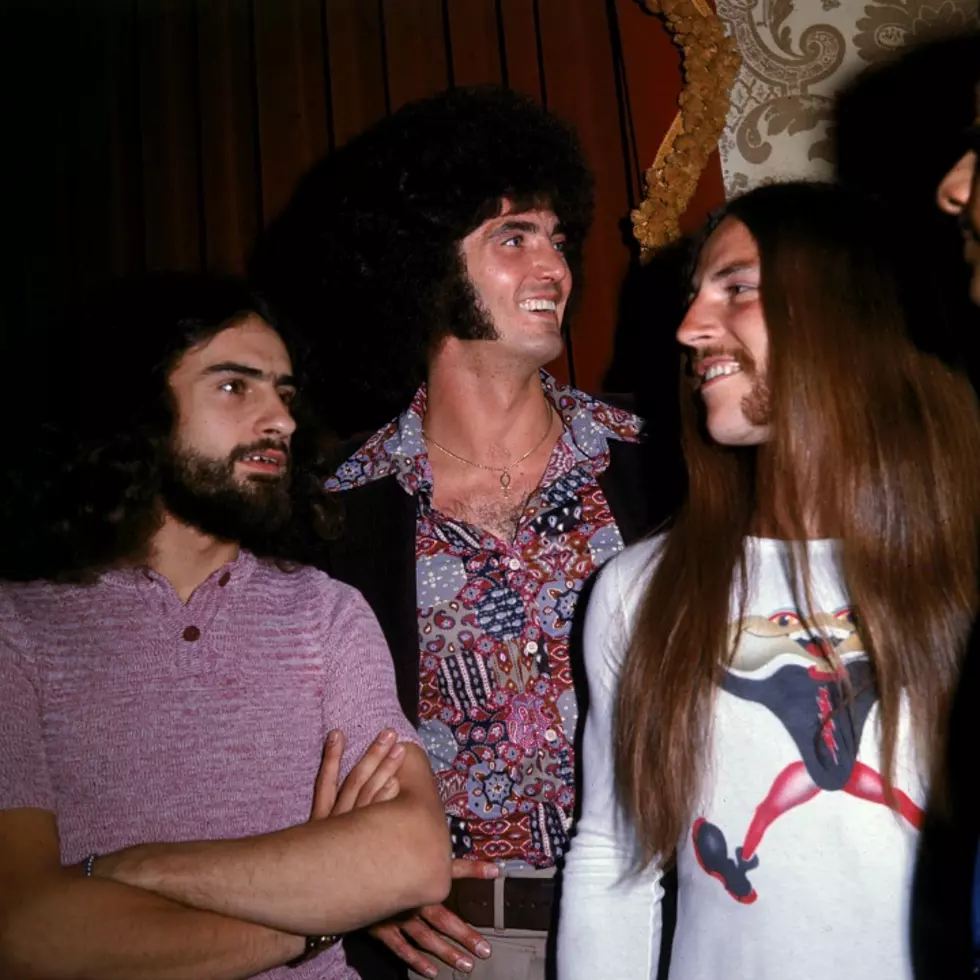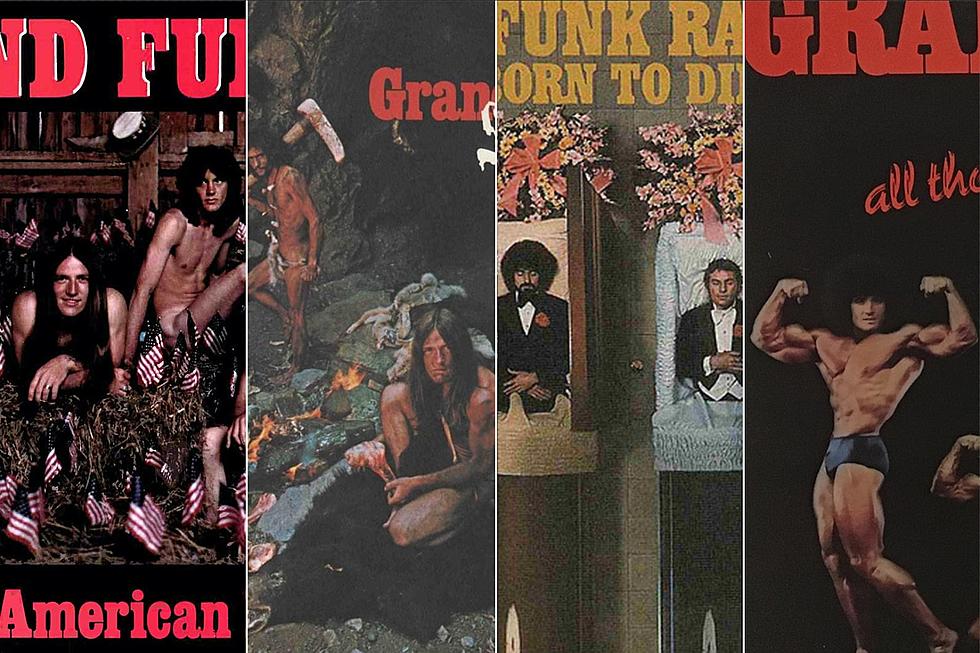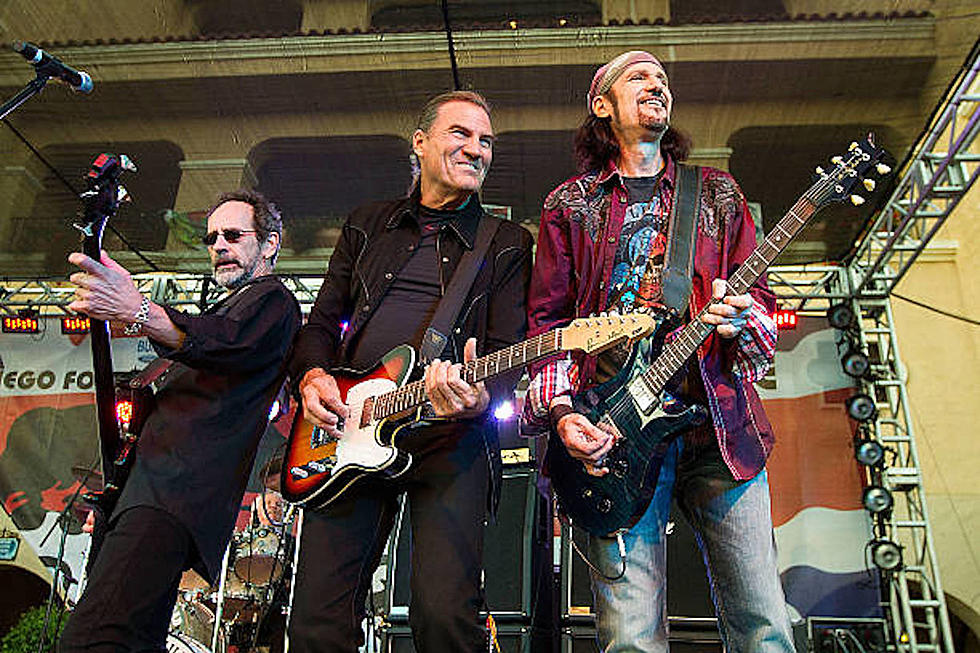
How Grand Funk Railroad’s Red Album Perfected Their Caveman Stomp
Things moved a lot more quickly at the end of the '60s. Rock 'n' roll bands played and played, hitting the studio in between their many road trips. Grand Funk Railroad were no different.
Shortly after they were signed to Capitol Records in 1969, the group performed at such events as the Atlanta Pop Festival, the Texas International Pop Festival and the Strawberry Fields Festival in Canada. They released their debut album that summer. And in between tour dates, Grand Funk Railroad rushed back into the studio to record its second album, which would hit shelves before the end of the year.
Recorded in October, and released just two months later, Grand Funk (also known as the Red Album) would help cement the band's reputation as one of the heaviest of the era. Grand Funk Railroad drummer Don Brewer, bassist Mel Schacher and guitarist/singer Mark Farner were influenced by groups like Cream and the Jimi Hendrix Experience, but they brought something distinctly American to the music. Rising from the grit and grime of Flint, Mich., working class to the core, the aggressive and harsh tones of their hometown couldn't help but find a way into Grand Funk's music.
The album kicks off in a blast of sonic fuzz with "Got This Thing on the Move," with a riff packed full of distortion as well as soul. (The song actually dates back to Farner and Brewer's days in their pre-Grand Funk band the Pack.) They keep things moving with the funky "Please Don't Worry" and "High Falootin' Woman," which nails a bluesy boogie groove that became familiar in their music.
While "Mr. Limousine Driver" is a standard blues shuffle with a heavy backbeat by Brewer, "In Need" stretches out a bit with some extended soloing from Farner, whose Midwest garage-band aesthetic and spirit more than made up for his occasional lack of finesse. "Winter and My Soul" is another surging blues-based rocker that throws in a jazz-inspired romp mid-song, before it plows back in, caveman style. So their swing leaves much to be desired. At least this brief misstep leads to the album's climax.
Listen to Grand Funk Railroad Perform 'Please Don't Worry'
"Paranoid" remains a Grand Funk tour de force. Starting with a sorta ominous voice buried inside a distant warning siren, it doesn't take long for the song's insane to come blasting through. "Did you ever have that feeling in your life that someone was watching you?" Farner asks. Piercing jabs of guitar build until the point when Farner lets loose like a crazed teenager trying to imitate Jeff Beck. The fuzzed out wah-wah guitars, neanderthal drumming and a solidly anchoring bass help set the mood. Subtlety was never Grand Funk's forte, and the relentless pummeling of "Paranoid" proves it.
The album ends with a 10-minute cover of Eric Burdon and the Animals' "Inside-Looking Out." Grand Funk twist the song to fit their style, replacing the darkness and mystery of the original with volume and chaos. It would become a staple of the band's live shows at the time, and for good reason. This is prime Grand Funk.
The Red Album would hit No. 11 on the chart, sell more than a million copies and turn fans on to their debut, which picked up enough momentum to go gold. The band's first few albums were recorded in Cleveland by engineer Ken Hamann. Even though manager Terry Knight gave himself credit as producer, Hamann was the one who captured the band's primal rawness.
"Ken Hamann, I think, had more of an open mind," recalled Don Brewer in the liner notes to the 2002 reissue of Grand Funk. "He approached it like, 'This is rock 'n' roll, we don't have to do things the traditional way all the time. How can we get Mark Farner's screeching, raggy, awful friggin' sounding guitar on tape?'"
Loved by fans, hated by critics, Grand Funk became a punchline over the years. For one thing, they're one of Homer Simpson's favorite bands. But the fact is, they were an awesome force of no-frills, true-to-the-core, no-bulls-- rock 'n' roll. And if their debut left any doubt about that, their sophomore album made it very clear.
The Top 100 Albums of the '70s
More From Ultimate Classic Rock









